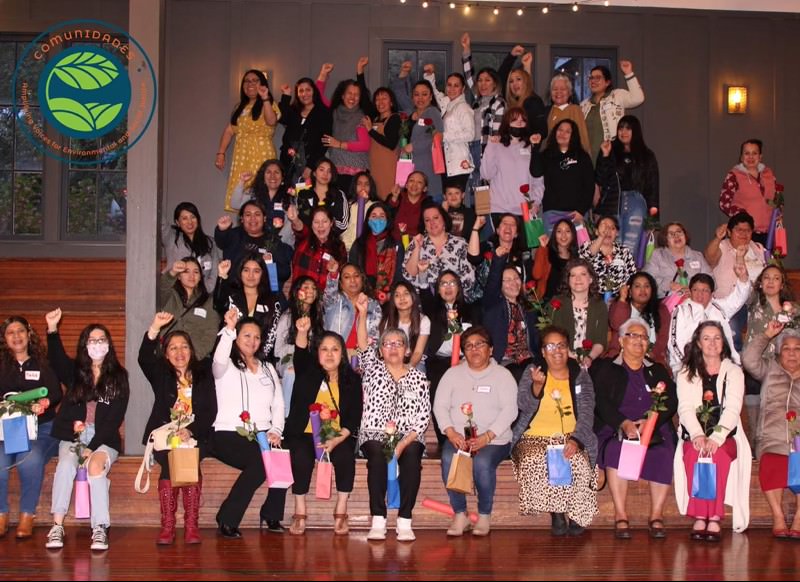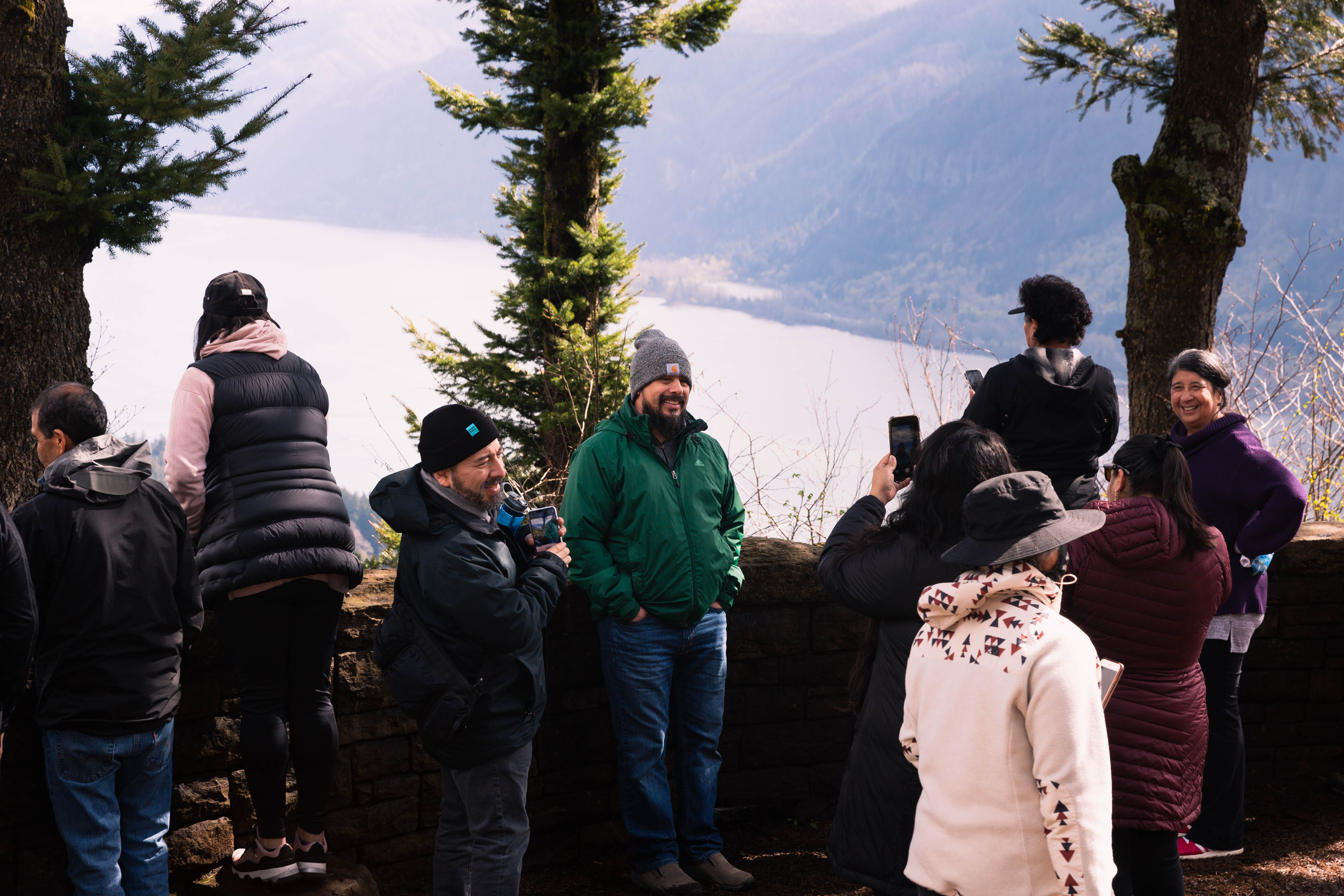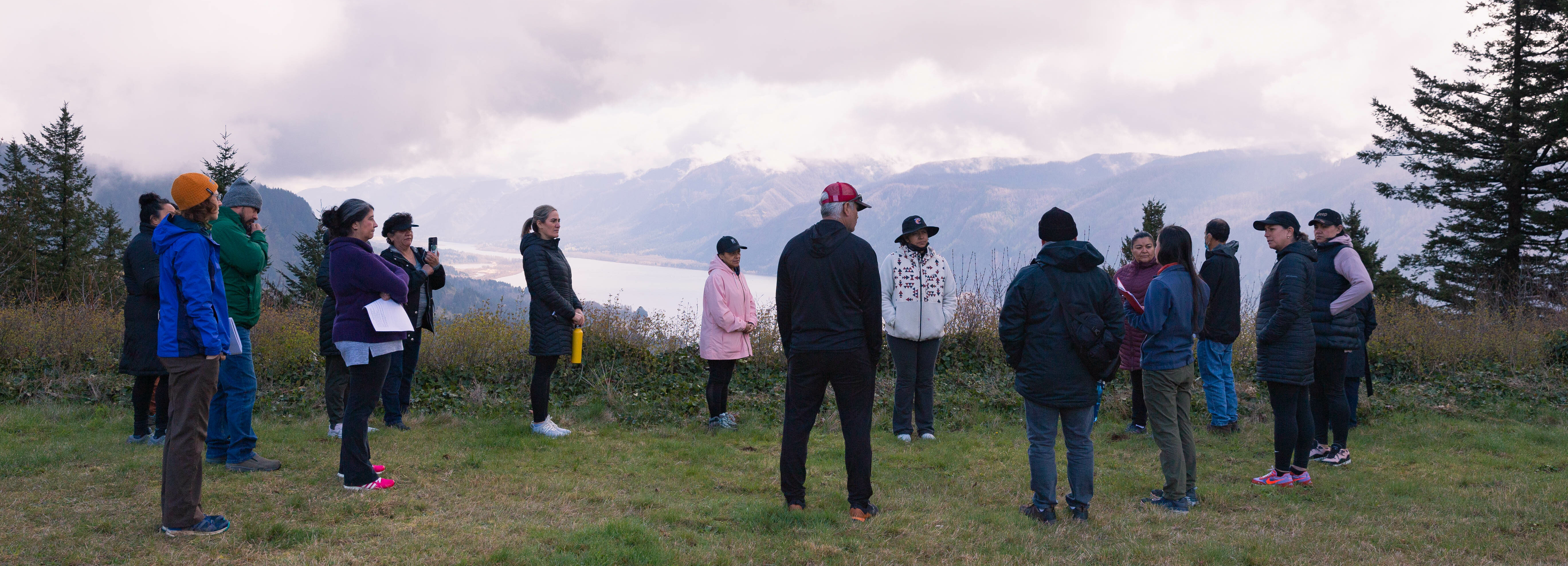By Cate Hotchkiss
Pairing a commitment to diversity, equity, inclusion, and justice with meaningful actions is never easy. For that reason, over the past year, Friends of the Columbia Gorge staff members have worked to build new, enduring community partnerships with regional groups who have been historically excluded from conservation and land management debates and decision making in the Columbia Gorge.
“Social justice and human rights are intertwined with environmental and conservation work,” says Denise López, Friends conservation organizer. “For example, farmworkers will experience some of the biggest impacts of a warming climate. When we stand up for their health and well-being, we also better protect the Gorge’s agricultural lands and economy over the long term.”
Through López’s outreach, in the last year Friends teamed up with Comunidades, a Gorge-based, Latino-led environmental and social justice advocacy organization. Together the organizations worked to build additional support for the passage of Oregon House Bill 4002, which would create overtime pay to agricultural workers in the state. The bill was passed by the legislature and signed into law by Gov. Kate Brown in spring 2022.
López is also connecting Comunidades with the Columbia River Gorge Commission to collaborate on the commission’s inaugural climate change action plan. “Through a series of conversations, we hope to help shape climate policies and incorporate perspectives from members of the BIPOC (Black, Indigenous, and People of Color) community into the plan,” she explains.
Starting with accessibility
While López has been strengthening relationships with frontline communities on Gorge conservation advocacy efforts, Mika Barrett, Friends accessibility project manager, has brought vibrant new voices to Friends’ land-use planning table through the Gorge Accessibility Project.
In 2020, Friends of the Columbia Gorge Land Trust purchased two properties near the Catherine Creek and Cape Horn recreation areas. To help reimagine and effectively redesign the new preserves in ways that prioritize inclusivity, Barrett assembled a diverse steering committee that included leaders of groups that have often faced barriers to recreation in the Gorge. Represented were nonprofits focused on accessibility to outdoor recreation, people working to connect young families with nature, and advocates for those living with disabilities. Additional participants included members of regional tribes, people of Latin-American descent, more recent immigrants living in the Gorge, other diverse groups working to improve outdoor access for all, and U.S. Forest Service public land managers in the Gorge.
The committee’s objective, Barrett explains, “was to develop, by June 2022, conceptual designs for the two properties that could provide accessible recreation opportunities that are inclusive and welcoming to people of varying ages, abilities, and cultural backgrounds.” Over the past year, they engaged in a series of topic-specific planning sessions and community listening sessions to learn directly from those who are excluded from the Gorge.
Examples of community member feedback included:
“Just to hear that there is a place being designed for people like me, makes me want to share this with others. As a person with chronic pain, when people say the Gorge is for everyone, I never thought of it as a place for me.”
“Not having enough information about the trail and area is a barrier to visiting new nature areas. I want to read about its accessibility and what to expect, from tread to distance between seating options along the trail. Including detailed trail info allows people to make decisions about their own bodies and what’s right for them.”
“What keeps me from doing outdoor activities is the sense that I don’t belong in those spaces. There have been experiences when I am stared at just for being a person of color and being at a public park. It should be stated at the site that this area is inclusive and welcoming to all people.”
These insights and others have now shaped the new site designs, which Friends will share with the public soon.
Barrett added, “Through this project, we not only learned about under-represented communities’ desires to connect with the Gorge at these two preserves, but it also has helped inform our work more broadly as a land trust. This is a National Scenic Area, yet traditionally, it has only been accessible for a portion of the population.”
Moving forward, Friends hopes to change those limitations by building on the momentum, cooperation, and collective energy of new and long-standing partnerships, and in the process, fortify the foundation of Friends’ efforts at large.
Cate Hotchkiss is a freelance writer and photographer who lives in Hood River with her husband, two children, and labradoodle. View Cate's photography website.
Get involved with our work—find out how to stay updated, volunteer, or give.

